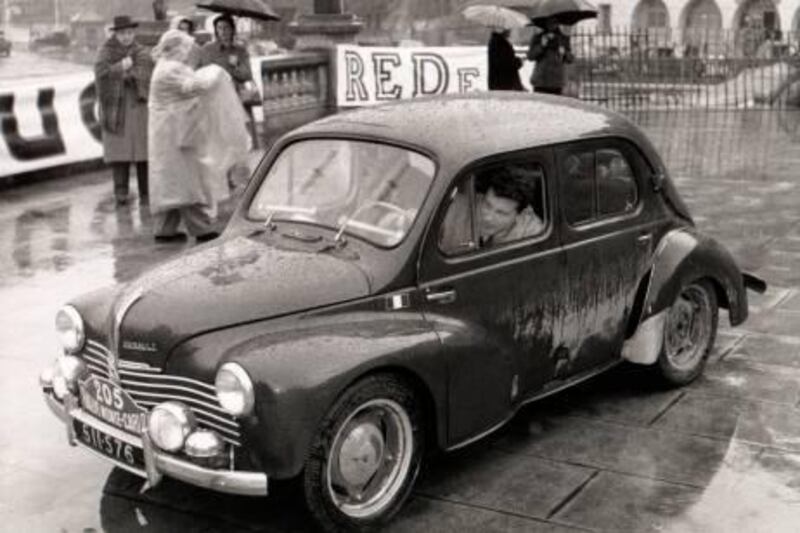Louis Renault is arguably the most important French industrialist of the modern age. One of the pioneers of the motor car, he was France's answer to Henry Ford, bringing mass production to Europe and, with it, the joys of motoring to the masses. More than 100 years after its formation, Renault remains a popular and trusted badge. But while his company remains dear to the French, the man himself has been cast as a villain, due to an arrest for collaboration with the Nazis that is hotly contested to this day.
Renault designed his first car in 1898 and soon gained a reputation for engineering genius, with inventions such as drum brakes and hydraulic suspension. With financial support from his brothers, he set up a factory in Boulogne-Billancourt and, by the time of the First World War, it was one of the largest car manufacturers in France, with Renaults standing out with their distinctive "coal scuttle" noses. During the war, Renault designed the first modern tank and was awarded for his contribution to victory with the Legion of Honour. He was the patriot of the production line.
Over the next few decades, the company excelled and expanded but Renault, a hard-nosed businessman with right-wing views, did not make many friends. He formed a bitter and intense rivalry with Andre Citroen, whom he referred to as "the little Jew". He was also brutal in suppression of the labour unrest and strikes that followed the Wall Street crash. Becoming increasingly paranoid about the threat of communism and his own safety, he became a recluse at his castle near the coast of Brittany.
When war broke out again, Renault was doing his patriotic duty in the USA, negotiating for use of American tanks. When he returned, his homeland had been occupied by the Nazis and was under the control of the Vichy government, itself under the thrall of the Third Reich. He had a choice: either build German trucks or see his factories and workforce subsumed into Daimler-Benz and production moved to Germany. He chose survival and, over the course of the war, built more than 30,000 vehicles for the Wehrmacht. This collaboration was deeply resented by members of the French resistance, who saw Renault as a traitor and therefore a target. The hero of the First World War was painted as a villain of the second, and the British RAF made two bombing raids on Renault factories.
In September 1944, he was arrested on a charge of collaboration and sent to prison. He stressed that his actions had saved 40,000 workers from being forcibly relocated to Germany and that he had prevented production of tanks or armaments. As he explained it to a friend, he was "giving the Germans butter so they wouldn't take the cows". Tragically, he was never given the opportunity to plead his innocence at trial, as he died a mere four weeks after being incarcerated.
After the war, Renault was nationalised without a single franc of compensation for his wife or son. The company went from strength to strength, largely due to the success of the 4CV, a model Renault had developed in secret during the war. He had been made a scapegoat and the French government had forcibly acquired an industrial powerhouse that was making US$11 million (Dh40.4m) in profit each year by the mid-1950s. But the fight to clear his name goes on.
In 1956, his widow, Christiane, claimed that Renault had been murdered in prison and presented both an eyewitness account of a nun claiming to have seen the frail 67-year-old being beaten and an X-ray showing a broken neck (the official cause of death was recorded as a urine infection).
Furthermore, historians found evidence that Renault had deliberately sabotaged many of the vehicles produced for the Germans, causing many engines to seize on the Eastern front. Reliability problems had been one of the causes of the failure of the Germans to push through the Russian lines; perhaps Renault was a hero after all.
Despite fresh evidence, the French government refused to reopen the case and, in 1999, Renault's grandchildren were not invited to the company's centenary event. But this is a scandal that has not yet run its course, as earlier this year a court case began seeking compensation for the Renault family.
Justice is rarely meted out fairly during wartime, and Renault may have been a victim of circumstance and a high-profile scapegoat to expunge France's guilt at having coalesced with the Nazis.
Not just another motor magnate then, but there is more often than not a tale about the man behind the marque.






